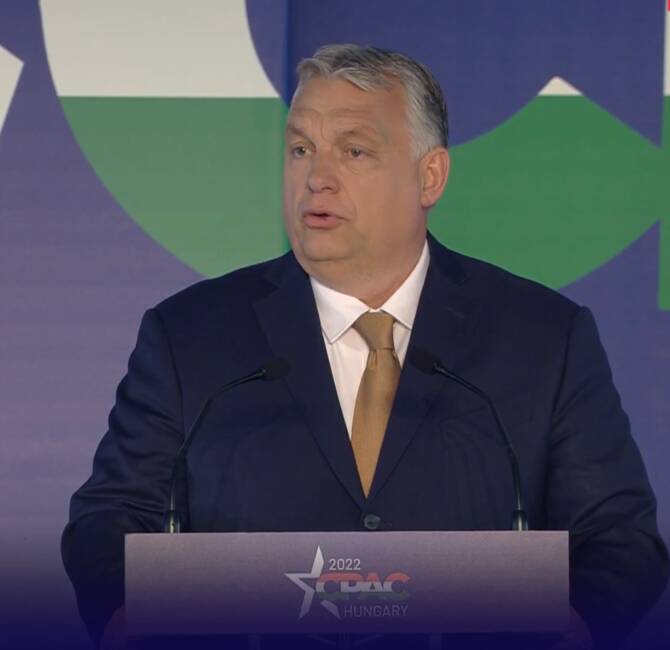By Modeste Schwartz.
Romania – Henceforth sheltered – thanks to the cold – from the competition of country picnics and outdoor barbecues, the Soros galaxy of Romania and other “civil societies” duly infiltrated by the “secret” services can now resume their revolutionary winter program, under the form of demonstrations all the more “massive” (according to the Western press) that they are conducted after nightfall. What a pity! as last Sunday there was such splendid weather in the afternoon … But then: by day, it would be easy enough for a drone to take some photographs and demonstrate to the entire world that the 5,000 demonstrators in Cluj were in actuality less than a thousand (including 500 political mercenaries, employees of all kinds of “NGOs”) – which, compared to the “official” figure of 5,000, suggests that we can also divide by at least four the number of 10,000 protesters put forward for Bucharest. Last winter’s failed maidan’s most successful slogan, by the way, was “nightly like thieves”.
Just like the dress rehearsal in early September, this inauguration of the new Romanian Maidan season was therefore, quantitatively, a flop. Qualitatively, moreover, despite the recent and massive recapitalization of the Open Society by its founder, the show is not very new: the same hipsters waving the same American and European flags as last winter, and the same signs: “We are watching you!” – a slogan of admirable sincerity, given the notoriously high number of infiltrators from the Romanian Information Service (SRI) among the organizers. The doorman of a hotel located on the route of the Cluj demonstration, perplexed by the nocturnal promenade of this idle youth, was quick to place his own placard prominently: “receptionist wanted”. Unfortunately for him, the majority of these evening strollers are already earning a decent enough living, serving various “NGOs” dedicated to the promotion of feminism and LGBT, social issues or to the noble cause of politically exploiting the Roma.
In Bucharest, some government building was surrounded by protesters holding signs reading “democracy is under siege”. Considering their ludicrous number on the one hand and, on the other hand, the landslide democratic majority supporting the present government, one can only agree.
The unpaid naïfs, however, in spite of the boredom of winter Sunday evenings, seem, this time, reluctant to join the movement, officially revived to “save Romanian justice” from a reform “which threatens to politicize it”. How to explain this lethargy of Romanian globalist revolutionaries?
Let’s start with some very general questions:
Question A:
Imagine that you live in a republic with a semi-presidential constitution (a president elected by universal suffrage, sharing power with a prime minister proposed by a parliamentary majority, but not without executive internal powers), where there is a national anti-corruption prosecutor’s office. In which case would the appointment of the head of this prosecution seem the least politicized:
1) If appointed by the President of the Republic?
2) If appointed by his / her peers?
Question B:
In an efficient and transparent judicial system, do you think that judges:
(1) Must be immune from prosecution in the event of a miscarriage of justice, even when such errors have obvious political consequences which cannot be retroactively compensated, thus leaving a strong suspicion of interference in the affairs of the executive?
2) Must answer before their peers for their errors?
Whatever answer you gave to these questions, we can only note that, curiously, the Romanian politicians / parties / NGOs generally presented by the Western press as “the party of reforms and anti- Corruption” (i.e. President Iohannis and his National Liberal Party, currently dominating the opposition and the many NGOs linked to the organization of the Maidan attempt of last February) seem to unanimously answer: A1, B1.
If this surprises you, here are some contextual elements that could assist you to better understand:
1) Despite the extraordinary thrashing organized by the Western press to bring to the forefront the femmes fatales of the Romanian anti-corruption struggle (L.C. Kövesi, M. Macovei), the record of this struggle is for the moment a most meagre one: definitive sentences of more than two years are extremely rare and, even more serious: very few assets are confiscated to compensate for the immense shortfall caused by the various misappropriations of the state. On the other hand, it is already commonplace to see politicians who are notoriously corrupt being charged or imprisoned for a few months (or, all the more, one or two years) for minor offenses (mere trifles compared to the major misappropriations they are being suspected of) and then often released on appeal “for lack of evidence”. For those who, in a fit of angelic naivety, would like to see in these inconclusive results the consequence of a lack of experience or means, let us specify that the anti-corruption prosecutor’s office is currently in its sixteenth year of operation and has had for the last few years (even often in defiance of individual freedoms) the assistance of vast sectors of the Romanian intelligence community, which totals – in absolute numbers! – more employees and a larger budget than all its European counterparts. It is therefore clear that the “anti-corruption struggle”, as it has been carried out in recent years, does not have as its real objective the eradication of corruption, but serves as an instrument of political blackmail for those who control it. This is the drift that a newly instituted accountability of the judges would put an end to; judges would thus lose the possibility to “shoot blanks” at corrupt politicians, i.e. to reserve for themselves the possibility of releasing them after a successful blackmail operation.
2) Anyone who has lived – even briefly – in Romania knows that the Romanians (general population and “elites” combined) are not characterized by a highly developed institutional sense. Professor of Constitutional Law, Emil Boc, the irremovable mayor of Cluj / Kolozsvár, needed nearly ten years to “notice” that his refusal to introduce a plurilingual public display violated the rights of the local Hungarian minority. More generally, the concept of impersonal politics is almost unknown in Romania, where every institution, every party, every movement must have a face and a first name in order to become intelligible. In fact, the speeches about the Romanian “Rule of Law” only reformulate, in the language of a legal pseudo-formalism digestible by the international opinion, the message of the Westernist Kulturkampf which President Johannis, his NLP allies (and even more so the Romanian equivalent of En Marche: the young USR party) and befriended NGOs (especially those of the Soros galaxy) intend to lead in Romania. The ideological presuppositions of this Kulturkampf are the following:
* Corruption is a detrimental legacy of the communist period, itself a by-product of “oriental” obscurantism, such as it triumphs, in particular, in Putin’s Russia. It is in vain that one would ask the “Young Beautiful and Free” (as the pro-Johannis maïdanistas refer to themselves, seemingly without irony) what communist past can explain the enormous corruption that flourished in Romania between the wars and during the epoch of the Principalities (before and after the institution of a European-style monarchy), or what kind of Eastern obscurantism would explain the financial mega-scandals of the last thirty years on Wall Street and the City of London. For them, the West is a pure and virtuous world, where harmful influences will be rare are explained (in private, or in the anonymity of online commentaries) exclusively by means of anti-Semitic arguments (another picturesque trait of these Ukrainian-type Maidans, where Hitler-nostalgic extreme-right and anarchist / LGBT extreme-left fight side-by-side on the same barricade).
* (As a consequence of the previous dogma): Any institution controlled by the friends of the West (such as the very Germanic – and, moreover, ethnically German – President Johannis, or the current director of the anti-corruption office, L.C. Kövesi, who seems to spend more time at the US Embassy than in her own office) is by definition pure and apolitical (including the Presidency, whose holder is a politician, vested with an electoral mandate, not unlike the Prime Minister or any mayor). Any institution controlled by the currently ruling Social Democratic Party (PSD), the de facto heir of the former single party before 1990 (although explicitly rejecting the latter’s ideology), is by definition “politicized” and corrupt. Eight months ago, this curse seems even to have been extended to the small right-wing party ALDE, because of its participation in the current government coalition alongside the PSD; yet, ALDE brings together those of the historical Liberals (comparable to the former Hungarian MDF) who refused to enter the neoconservative mould of Orange revolutions (which gave birth to the 2004-2014 Băsescu regime, of dire memory for many Romanians) – some of which, explicitly anti-communist, clearly claim the heritage of the pre-war Liberal Party. Again, there is no point in recalling the interminable list of corruption cases which have tarnished the two successive presidencies of T. Băsescu (and before him that of E. Constantinescu): for the “Young Beautiful and Free”, the “anti-communist” struggle against corruption (often carried out by former members of the pre-1990 Romanian Communist Party or by prosecutors who were already in office under N. Ceauşescu, such as the picturesque M. Macovei) is not an opinion or a program articulated according to the laws of reason, but a dogma based on emotion.
Hence, one can better understand the rage that seizes the self-proclaimed “Young Beautiful and Free” (which K. Johannis has been planning to capitalize on politically, under the form of a winter Maidan, for the last three months – as it appears from his August statement) when confronted with such reforms that, if proposed and / or adopted by a Euro-compliant parliamentary majority (dominated by the NLP on the “right” or by the mutant USR on the “left”) against the will of a PSD (or ALDE) president, would certainly have attracted their full support.
This rather anti-democratic contempt of legal norms is moreover not a pure accident in the discourse of Euro-compliant Romanians. Nor does their apparent disregard for the democratic (yet overwhelming) majority that gave birth to the current PSD-ALDE government really contradict the rhetoric of “democracy in danger” that they use daily against that government. The foreign observers that this cacophony would surprise were probably not informed of the “footnotes” (very rarely translated, except by some little-read, far-left publications): placards, satirical drawings, comments posted on social media, even duly signed editorials in the Romanian press of the extreme right (În linie dreapta, Revista 22, etc.), openly calling for a censual democracy, and / or the civic disqualification of the elderly, especially those inhabiting rural areas, which are supposed to support the PSD (and which are, however, more often than not, the very grandparents, or even parents of these “Young Beautiful and Free”). Under the cover of complicit silence in the Western press, social Darwinism is doing very well in this poorest country of the EU.
It goes without saying that such positions would be inconceivable in Western Europe (where E. Macron had to spend hours and hours at the factory, at a non-prophylactic distance from genuine proletarians, in order to gain forgiveness for some similar verbal slides), and would even take a rather exotic consonance in the economically most developed part of the post-communist world (the Visegrad Group, Slovenia …). Since Romania is the European champion of labour emigration, essentially oriented towards Western Europe, more and more Romanians (coming home after years of stay in France, Germany, etc.) are able to notice the uncanny valley which separates (for better or worse) the reality of the West and the Western myth on which President Johannis’ pro-Maidan propaganda is based. Seen from Hungary, the “Young Beautiful and Free” are somewhat like some FIDESZ militants of the late 1980s, who would have been cryogenised and reanimated in 2017 in a world they no longer understand, without a chance to be cured of any of the illusions that FIDESZ has managed to overcome in the meantime, so that they – unlike V. Orbán’s FIDESZ – will never come to power, or will seize power only to see it immediately confiscated in favour of some small Balkan Pinochet in the pay of the Western multinationals. In spite of their most vocal jeunisme, the “Young Beautiful and Free” are historically backward, and K. Johannis probably knows that the Maidan which was kickstarted (but more kicked than started) last Sunday will oblige him to fire his few remaining bullets.




